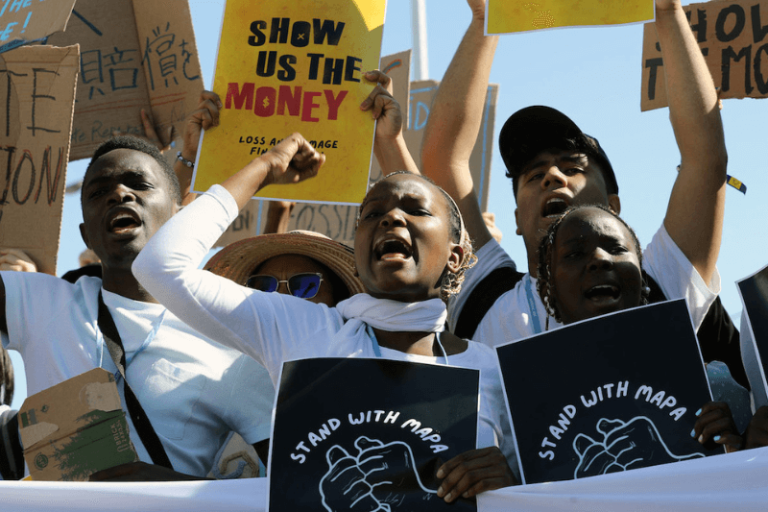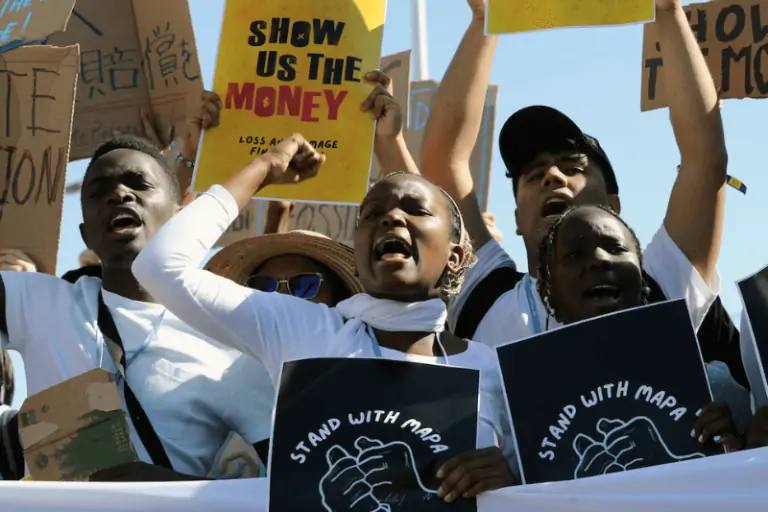

financial aid divide for climate change victims
Representatives from governments worldwide will gather this upcoming weekend in a last-ditch effort to address the significant disparities between wealthy and developing nations concerning the distribution of financial aid to support vulnerable populations affected by climate change.
The discussions surrounding finances allocated for “loss and damage,” intended to provide rescue and rehabilitation for countries and communities facing the repercussions of extreme weather events, began in March but recently stalled amidst discord.
Delegates have reconvened in Abu Dhabi for a two-day conference set to conclude on Saturday night. The aim is to find common ground on the outstanding issues before the commencement of the United Nations Climate Change Conference (COP28), scheduled to start at the end of the month in the United Arab Emirates.
Stakeholders in the climate action community consider this weekend’s meeting critical, as they fear that a lack of broad consensus could bog down the comprehensive COP negotiations. The success of the new loss and damage fund hinges on closing the trust gap, setting the fund into operation, and providing crucial support to the most vulnerable individuals who desperately need it.
Harjeet Singh, the head of global political strategy at Climate Action Network International (CAN International), stressed that millions of lives and livelihoods are at stake, making the meeting a “make-or-break moment” for the fund’s success.
The central challenge revolves around striking a balance between wealthy countries advocating for voluntary cash contributions from emerging economies, including large countries such as China and petrostates like those in the Gulf, alongside traditional donors such as the United States and Europe. Developing countries remain concerned about fund governance and equitable access to the rescue funds they urgently require.
All countries worldwide concurred to establish a loss and damage fund at the 27th Conference of the Parties, which took place in Egypt last year. This marked a historic achievement that developing countries had been pursuing for more than ten years. These countries, which have contributed the least to the climate crisis, continue to bear the brunt of extreme weather events due to their geographical location, fragile infrastructure, and limited resources.
Recent climate-induced events, such as the devastating floods in Pakistan and the crippling drought in the Horn of Africa, could have benefited from loss and damage payments. As the planet’s average temperature continues to rise, scientists predict a surge in natural disasters, necessitating hundreds of billions of dollars annually to repair the damages.
The primary points of contention revolve around the fund’s administration, contributor selection, access, and financing.
Amidst these disagreements, participants hold strong opinions about the fund’s location and funding sources, while the criteria for accessing the fund remain a subject of debate. The future of the loss and damage fund hinges on governments’ ability to forge a compromise to deliver equitable support to those affected by climate change.
Lien Vandamme, a senior activist at the Centre for International Environmental Law, reiterated the need for wealthy nations to change their stance on negotiations. The upcoming summit’s success depends on a substantial shift in the attitude of rich countries toward these negotiations, as the rights of vulnerable communities must be upheld even in the event of a breakdown in talks.
US Secretary of State Marco Rubio ordered South African Ambassador Ebrahim Rasool to leave America by March 21 because he…
Early 2025 ends with IPL fever in India and cricket fans receive good news of an international schedule full of…
National teams from Africa advance their World Cup qualification pursuit as they take part in Matchday 5 of the qualifiers.…
Creative Africa Nexus (CANEX) is running the Book Factory Prize for Publishing in Africa again to award $28,000 to African…
Canadian companies have expanded their presence as major African mining stakeholders and invested more than $37 billion. Africa holds the…
The South African government wants people to plant one million trees across the nation within a single day on September…
This website uses cookies.